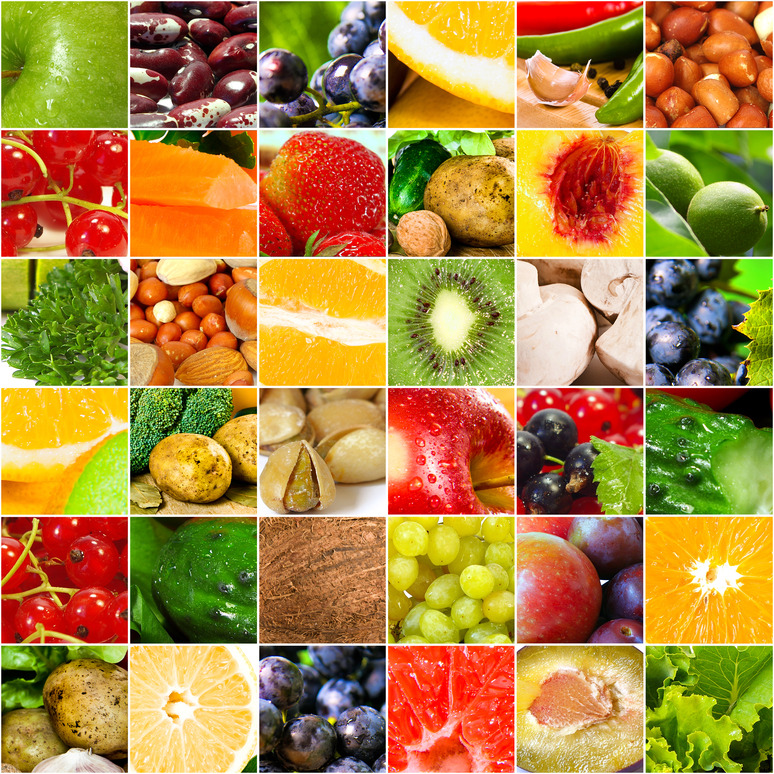
There's a lot of talk in our society these days about whether or not we should be taking vitamin supplements. Whether we want to correct a deficiency or remain healthy through cold and flu season and periods of high stress, we want to be sure our bodies are getting all of the tools they need to keep us going.
While some supplements are certainly beneficial for particular needs, it is also possible to get many essential vitamins from the foods we eat.
But not just from any food. Food that is rich in essential vitamins is not the kind you'll find in a fast food restaurant or in a grocery store's pre-packaged foods selection. Real food--food that is made from basic ingredients that grow in nature--can help you obtain all of your body's necessary vitamins.
That means eating fruits and vegetables, lean meats, and grains that have gone through little processing. The more processed the food, the lower the likelihood it contains enough vitamins to make a difference.
What are the essential vitamins?
There are 13 vitamins that are considered "essential" for the human body to function properly. They are:
1. Vitamin A
2. Vitamin C
3. Vitamin D
4. Vitamin E
5. Vitamin K
6. Vitamin B1 (thiamine)
7. Vitamin B2 (riboflavin)
8. Vitamin B3 (niacin)
9. Pantothenic acid
10. Biotin
11. Vitamin B6
12. Vitamin B12
13. Folate (folic acid)
If you aren't getting enough of one of those vitamins, you can develop a deficiency. Vitamin deficiencies have symptoms that you might feel, but not realize are the result of a deficiency—such as fatigue, soreness, nausea, or an unhealthy skin color, among other symptoms. Over a long period of time, a deficiency can lead to bigger health problems and disease.
You can avoid a vitamin deficiency by eating a diet that is full of a variety of real foods. While eating any of the foods mentioned above (fruits, vegetables, lean meats, and grains) is a good idea, there are a few ingredients that are considered "superfoods" because they contain many of the essential vitamins your body needs.
Here are nine of the most widely recognized superfoods that contain several essential vitamins.
1. Almonds are both a healthy snack and great source of vitamins E, B2, and biotin.
2. Beans of all stripes are great sources of essential vitamins. For example, black beans, kidey beans, and navy beans all offer both folate and B1.
3. Blueberries are chock full of vitamins K and C.
4. Broccoli offers up exceptional levels of vitamins C, K, pantothenic acid, and folate, as well as vitamins A, E, B1, B2, B3, and B6.
5. Eggs are definitely not as bad as we've all been led to believe; they're a fantastic source of biotin, pantothenic acid, and vitamins A, D, B2, and B12.
6. Kale's leaves are packed with vitamins A, C, E, K, B1, B2, B3, B6, and folate.
7. Kiwi is high in vitamins C, E, and K, and folate.
8. Salmon is loaded when it comes to vitamins B3, B6, B12, D, biotin, and pantothenic acid.
9. Spinach contains high amounts of vitamins A, C, E, K, B1, B2, B3, and B6, as well as pantothenic acid and folate. (In other words, it offers a big serving of all of the essential vitains except Vitamin D, biotin, and B12.)
In addition to the 13 essential vitamins, these superfoods also contain calcium, protein, choline, and other healthful nutrients that help our bodies function at peak health.
If you were to eat a balanced diet that included all of the 10 foods named above, as well as a variety of other leafy greens, fruits and vegetables, complex nuts, seeds, and legumes, lean meats, and dairy products such as eggs and unflavored yogurt and skim milk, your body would be getting everything it needs.
For example, just eating a dish that includes spinach and eggs serves up all 13 essential vitamins. Adding other real foods to the equation bumps the percentages of vitamins that you consume and adds in other beneficial nutrients.
So stop buying the easy, pre-packaged or premade meals and start giving your body what it needs—real food!

